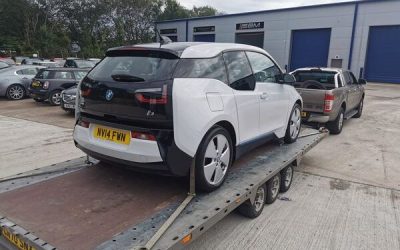Carmageddon: The Electric Car Fiasco

All Global Research articles can be read in 51 languages by activating the Translate Website button below the author’s name.
To receive Global Research’s Daily Newsletter (selected articles), click here.
Click the share button above to email/forward this article to your friends and colleagues. Follow us on Instagram and Twitter and subscribe to our Telegram Channel. Feel free to repost and share widely Global Research articles.
***
If the Conservatives are hoping to get re-elected next year they may have to rethink their policy of banning the sale of new petrol- or diesel-powered cars by 2030. Electric cars are proving to be an unmitigated disaster. Indeed, scarcely a day passes without a story appearing in the Telegraph about just how terrible they are – and not just if you want to get from A to B.
For instance, we learnt last week that some electric cars are losing their value twice as quickly as petrol alternatives.
Drivers have been pushed towards electric cars by a string of government initiatives, which are intended to help the country become “net zero” by 2050. However, drivers going green risk losing thousands of pounds more than those who stick with petrol.
Some popular electric models have fallen in price at twice the rate of petrol cars. A driver who bought an electric BMW i3 in 2020 would have paid £39,000 and could sell the car for £13,900 today, a depreciation of 64%.
However, the petrol equivalent has maintained much more of its original value. A new petrol-powered BMW 3 series cost £32,000 on average three years ago but would sell for £22,360 now – a drop of just 30%.
Yesterday brought more bad news.
First, we discovered that thousands of free electric car chargers have been pulled from Britain’s roads over the past year as soaring energy costs makes them unaffordable.
The number of chargers offering free electricity has fallen from 5,715 a year ago to 3,568, a drop of almost 40%.
They now make up less than one in 10 public chargers on Britain’s roads, compared to one in five a year ago.
The drop in free top-up charging spots is the latest blow to the Government’s ambitions to attract motorists to electric cars by making it cheap and convenient to charge them away from home.
Then we learnt that because electric cars can weigh 33% more than wet cars, much of our basic transport infrastructure – such as multi-story car parks and bridges – may well collapse under their additional weight.
Last month, car park experts raised concerns about the ability of some ageing car parks ability to handle the weight as the number of electric vehicles grew.
Russell Simmons, chair of the British Parking Association’s structures group, told The Telegraph that he had carried out inspections of multi-storey car parks in the UK over the last six months which would not have been able to withstand new EV weights.
Electric vehicles are generally heavier than petrol counterparts because of the weight of their batteries, which can weigh around 500kg.
Earlier this year, Jennifer Homendy, the chair of the U.S. National Transportation Safety Board, found that the best-selling EVs in the U.S. were on average 33% heavier than petrol counterparts.
To summarise, electric car owners have discovered in the past week alone that their cars may lose their value twice as quickly as non-electric vehicles, that free charging points are rapidly disappearing from our roads and if they park their Tesla in a multi-story carpark it might well collapse. Who knew virtue-signalling would prove to be so costly?
You’d have to have a heart of stone not to laugh.
*
Note to readers: Please click the share button above. Follow us on Instagram and Twitter and subscribe to our Telegram Channel. Feel free to repost and share widely Global Research articles.
Featured image is from TDS

